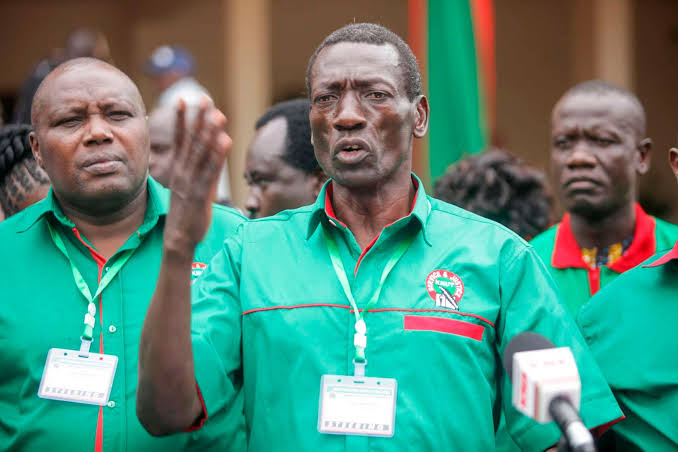The Kenya National Union of Teachers (KNUT), Kipkelion branch, has appealed to the Teachers Service Commission (TSC) to give priority to Primary Teacher 1 (P1) educators in the upcoming teacher recruitment exercise.
The branch expressed concern over the prolonged sidelining of qualified P1 teachers, many of whom have served the education sector diligently for years but remain either unemployed or underemployed.
David Bore, the Kipkelion Branch Secretary, voiced the union’s frustrations during a recent address in Kipkelion. He stressed that P1 teachers play a critical role, especially in the foundational years of primary education.
Bore argued that overlooking them in favor of diploma holders for the same teaching roles is unjust and demoralizing. According to him, P1 teachers are essential to the stability and quality of early learning, and it is imperative that the TSC acknowledge their contribution by offering them fair opportunities during recruitment.
“These teachers have patiently waited for years, contributing to the sector in various capacities. It is high time the TSC corrected this imbalance,” Bore stated.
He added that a transparent and equitable recruitment process would help alleviate teacher shortages in rural schools while also uplifting the morale of long-serving educators.
Bore also raised a red flag over the increasing involvement of politicians in the teacher recruitment process. He criticized the practice of politicians issuing appointment letters to newly hired teachers, a role that legally falls under the TSC’s jurisdiction.
Bore warned that such political interference erodes the integrity of the commission and undermines merit-based recruitment.
“The TSC is a constitutionally independent body mandated to handle teacher recruitment and deployment. The recent trend where politicians interfere with this process is troubling and unacceptable,” he noted.
The KNUT Kipkelion branch is now demanding that the TSC reassert its authority and ensure all recruitment processes are professional, lawful, and free from external influence. Bore emphasized that only through a transparent and rule-based system can public trust in the education sector be preserved.
In conclusion, the union called for strict adherence to recruitment guidelines, with equal opportunities for all qualified educators. They cautioned that any signs of favoritism, irregularity, or political meddling would be strongly opposed by the teaching fraternity.





